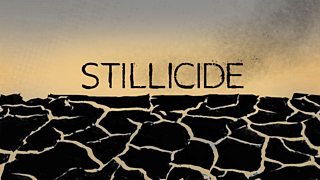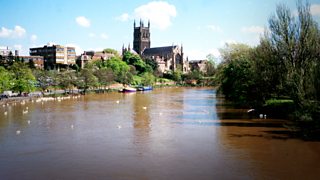Burn, beck and burble: 11 words for water
We shower in it, surf it, sail on it and slurp it. Whether it’s coming out of our taps or falling out of the sky, water is an essential, everyday part of human life. As such, it’s no surprise that we have a plethora of amazing words for H2O and the various forms it takes. Here are our favourite weird and wonderful words to describe the wet stuff.
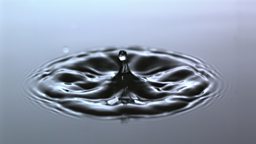
1. Rill
We’ve all heard of a brook or stream, but the word rill – a term that dates back to the 16th century and is probably German in origin – is less well known. It simply means a very small stream or rivulet.
2. Beck
In the North of England there’s a word of Old Norse origin that also means a small stream or brook: a beck. Beck is often used to refer to a brook with a stony bed.
3. Bourne
Who knew there were so many words for stream? Bourne is another one, meaning a small stream, especially one that flows intermittently or seasonally. It’s where the Dorset town of Bournemouth got its name – literally the mouth of the stream. In Scotland and the North of England the variant Burn is used, as in Blackburn.
Why do we pay for bottled water?
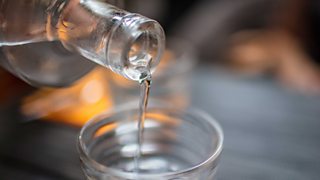
Why are we willing to pay for something we can get out of the tap for free?
4. Burble
Whilst we’re on small streams, there’s a word that’s predominantly used to describe the sound they make: burble. The water in a brook is said to burble as it travels over rocks and stones. The word was first used in the 1300's, likely someone’s attempt to imitate the sound of flowing water.
-
![]()
Stillicide
Cynan Jones' electrifying series set in the very near future - a future a little, but not quite, like our own.
5. Gill
In the North, an old Norse word is used to describe a ravine or the narrow body of water that flows through it: a gill. The alternative spelling ghyll is said to have been introduced by the Romantic poet Wordsworth.
6. Sound
Ever heard of a sound? It’s a large sea or ocean inlet, wider than a fjord or bay. Or, a narrow channel of water between two bodies of land, also known as a strait. That’s straightforward then.
7. Foss
Another word of Old Norse origin, foss is Yorkshire dialect for waterfall. Falling Foss is the name of a waterfall in The North York Moors National Park, popular with walkers who need to cool off.
Why more people are living on the water
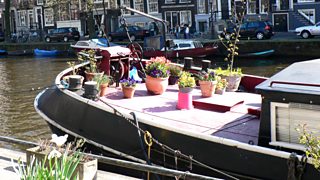
There are more than 30,000 boat owners across England and Wales.
8. Mere
A mere is merely shallower than a lake.
What’s the difference between a lake and a mere? A mere is merely shallower than a lake: it is broad in relation to its depth. Rather confusingly, despite its name Windemere in the Lake District is not a mere. In fact, it’s the largest natural lake in England.
9. Dub
An old Northern and Scots word, dub refers to a small pool of normally stagnant water, or a pool in a river.
10. Pulk
When puddle just won’t cut it, try pulk on for size. It’s northern dialect for a hole of standing water, a puddle, a muddy pond or a mudhole.
11. Freshet
A freshet is the overflow of a river or stream caused by heavy rain or melting snow. When a river floods after a spring thaw, that’s a freshet. It would certainly feel fresh if you took a dip.
Taking the plunge: the growing trend of cold water swimming

Why do people plunge into freezing cold water?
More from Radio 4
-
![]()
Mizzle and smirr: 13 British words and phrases for rain
Fine drizzle or a wet-to-the-undies downpour, the Brits know a thing or two about rain.
-
![]()
Stillicide
Cynan Jones' electrifying series set in the very near future - a future a little, but not quite, like our own.
-
![]()
The River
Five illustrated talks by different writers on the theme of the river.
-
![]()
Britain at Sea
Admiral Lord West tells the story of the Royal Navy during the 20th century.
